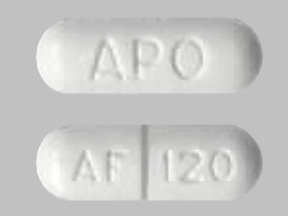
Sotalol (af) Coupons & Savings Card – Discount Prices from $6.24
My prescription
Edit
120MG, Sotalol (af) (30 Tablets)
Select pharmacy

CVS
$20.70
COUPON PRICE
Walmart
$6.24
COUPON PRICE
Walgreens
$11.60
COUPON PRICE
Albertsons
$12.08
COUPON PRICESotalol (af) savings card
Show this card to your pharmacist
Walmart
$6.24
BIN
ID
PCN
GRP
019876
LH89783768
CHIPPO
LHX
Powered by
Sotalol (af) dosage forms
Dosage Quantity Price from Per unit 80MG 30 Tablets $4.62 $0.15 80MG 60 Tablets $6.74 $0.11 80MG 90 Tablets $15.37 $0.17 120MG 30 Tablets $6.24 $0.21 120MG 60 Tablets $9.97 $0.17 120MG 90 Tablets $20.21 $0.23 160MG 30 Tablets $6.25 $0.21 160MG 60 Tablets $10.00 $0.17 160MG 90 Tablets $13.74 $0.15
| Dosage | Quantity | Price from | Per unit |
|---|---|---|---|
| 80MG | 30 Tablets | $4.62 | $0.15 |
| 80MG | 60 Tablets | $6.74 | $0.11 |
| 80MG | 90 Tablets | $15.37 | $0.17 |
| 120MG | 30 Tablets | $6.24 | $0.21 |
| 120MG | 60 Tablets | $9.97 | $0.17 |
| 120MG | 90 Tablets | $20.21 | $0.23 |
| 160MG | 30 Tablets | $6.25 | $0.21 |
| 160MG | 60 Tablets | $10.00 | $0.17 |
| 160MG | 90 Tablets | $13.74 | $0.15 |
Sotalol (af) Warnings
When considering sotalol for managing atrial fibrillation (AF), it's crucial to be aware of several significant risks associated with its use:
Risk of Serious Heart Rhythms
Sotalol can lead to life-threatening ventricular arrhythmias, notably a condition called Torsade de Pointes. This risk is heightened by factors such as higher doses, female gender, and reduced kidney function. To mitigate this, treatment should commence in a medical facility equipped for continuous heart monitoring and emergency interventions. Regular electrocardiograms (ECGs) are essential to monitor the heart's electrical activity and adjust the dosage as needed.
Bradycardia and Heart Block
The medication may cause a significant slowing of the heart rate (bradycardia) or lead to heart block, where the electrical signals in the heart are delayed or blocked. These conditions can increase the likelihood of developing serious arrhythmias. Patients with existing heart rhythm disorders, such as sick sinus syndrome, should avoid sotalol unless they have a functioning pacemaker.
Heart Failure
Sotalol's beta-blocking properties can potentially worsen or trigger new onset heart failure. It's important to monitor for symptoms like shortness of breath, swelling in the legs, or sudden weight gain. If such signs appear, discontinuation of the drug may be necessary.
Low Blood Pressure (Hypotension)
The medication can cause significant drops in blood pressure, leading to dizziness or fainting. Patients with borderline heart function should have their blood pressure closely monitored during treatment.
Respiratory Concerns
Individuals with asthma or other bronchospastic conditions should generally avoid sotalol, as it can exacerbate breathing difficulties. If its use is deemed necessary, the lowest effective dose should be employed to minimize respiratory risks.
Blood Sugar Levels
Sotalol may mask the warning signs of low blood sugar, such as rapid heartbeat, particularly in diabetic patients. This can delay the recognition and treatment of hypoglycemia, necessitating careful blood sugar monitoring.
Thyroid Issues
The drug can obscure symptoms of hyperthyroidism (overactive thyroid), like a fast heartbeat. Abruptly stopping sotalol in these patients might lead to a severe exacerbation of thyroid symptoms, including a thyroid storm.
Allergic Reactions
Patients with a history of severe allergic reactions may experience more intense responses while on sotalol and might not respond as well to standard treatments like epinephrine.
Surgical Considerations
If you're scheduled for major surgery, it's important to inform your healthcare provider about sotalol use. The medication can affect how your heart responds to the stress of surgery and anesthesia.
Electrolyte Imbalances
Conditions like low potassium or magnesium levels can increase the risk of arrhythmias when taking sotalol. It's essential to correct these imbalances before starting the medication and to monitor electrolyte levels during treatment.
Kidney Function
Since sotalol is primarily eliminated through the kidneys, impaired kidney function can lead to higher drug levels in the body, increasing the risk of side effects. Dosage adjustments based on kidney function are often necessary.
Given these potential risks, it's imperative to have a thorough discussion with your healthcare provider to determine if sotalol is appropriate for your specific situation. Regular monitoring and open communication about any new symptoms are key to safely managing your condition with this medication.
Sotalol (af) Side Effects
Sotalol AF is a medication prescribed to manage certain types of irregular heartbeats, particularly atrial fibrillation. While it can be effective, it's important to be aware of potential side effects that may occur during treatment. Common Side Effects:
- Fatigue and Dizziness: Many individuals report feeling unusually tired or dizzy when taking Sotalol AF.
- Slow Heart Rate (Bradycardia): The medication can cause the heart to beat more slowly than normal.
- Shortness of Breath: Some patients experience difficulty breathing or a sensation of breathlessness.
- Nausea and Vomiting: Gastrointestinal discomfort, including nausea and vomiting, may occur.
- Excessive Sweating: Increased perspiration has been noted in some cases.
- Diarrhea and Headache: Digestive issues and headaches are also among the reported side effects. Serious Side Effects:
- Heart Rhythm Changes: Sotalol AF can sometimes lead to new or worsening irregular heartbeats, including a condition called Torsade de Pointes, a serious type of ventricular tachycardia.
- Heart Failure: Symptoms such as swelling in the legs and ankles, unusual tiredness, or sudden weight gain may indicate heart failure.
- Severe Allergic Reactions: Signs include rash, itching, swelling (especially of the face, tongue, or throat), severe dizziness, or trouble breathing.
- Low Blood Sugar Levels: Particularly in individuals with diabetes, Sotalol AF may mask the symptoms of low blood sugar, such as a rapid heartbeat. Important Considerations:
- Monitoring: Regular check-ups, including electrocardiograms (ECGs), are essential to monitor heart function and detect any adverse effects early.
- Gradual Dose Adjustments: It's crucial not to stop taking Sotalol AF abruptly, as this can worsen heart conditions. Any changes in dosage should be made under medical supervision.
- Drug Interactions: Inform your healthcare provider about all medications and supplements you're taking, as certain drugs can interact with Sotalol AF, increasing the risk of side effects. If you experience any severe or concerning side effects while on Sotalol AF, contact your healthcare provider immediately. They can provide guidance on managing side effects or adjusting your treatment plan as necessary.
Sotalol (af) Interactions
When taking sotalol, it's important to be aware of potential interactions with other medications and substances, as these can affect how sotalol works or increase the risk of side effects. Here are some key interactions to consider:
Medications That Prolong the QT Interval: Sotalol can lengthen the QT interval on an electrocardiogram (ECG), which measures the heart's electrical activity. Combining sotalol with other drugs that also prolong the QT interval can heighten the risk of serious heart rhythm problems, such as torsades de pointes. Medications in this category include certain antiarrhythmics (like Amiodarone, disopyramide, quinidine, and procainamide), some antibiotics (such as Erythromycin and certain quinolones), and specific antidepressants (including tricyclic antidepressants). It's generally advised to avoid using these medications together with sotalol.
Beta-Blockers: Sotalol itself is a beta-blocker. Using it alongside other beta-blockers (such as metoprolol, Atenolol, or Propranolol) can excessively slow the heart rate and lower blood pressure, potentially leading to dizziness or fainting. Therefore, concurrent use is typically discouraged.
Calcium Channel Blockers: Medications like diltiazem and Verapamil, used to treat high blood pressure and heart conditions, can have additive effects when taken with sotalol. This combination may further slow heart rate and reduce blood pressure, increasing the risk of bradycardia (slow heart rate) and hypotension (low blood pressure).
Digoxin: Used for certain heart conditions, digoxin can slow heart rate. When combined with sotalol, there's an increased risk of bradycardia and other heart rhythm disturbances.
Insulin and Oral Antidiabetic Drugs: Sotalol may mask some symptoms of low blood sugar (hypoglycemia), such as rapid heartbeat. Additionally, it can affect blood sugar levels, potentially leading to hyperglycemia. If you're managing diabetes, your healthcare provider may need to adjust your diabetes medications and monitor your blood sugar levels more closely.
Clonidine: Used for high blood pressure and other conditions, clonidine combined with sotalol can increase the risk of bradycardia. If discontinuing clonidine, it's important to do so gradually and under medical supervision to avoid rebound hypertension (a sudden increase in blood pressure).
Beta-2 Agonists: Medications like Albuterol, used for asthma and other respiratory conditions, may be less effective when taken with sotalol. You might require higher doses of these medications, but this should only be done under the guidance of your healthcare provider.
Antacids: Antacids containing aluminum or magnesium can reduce the absorption of sotalol, making it less effective. To avoid this interaction, it's recommended to take sotalol at least two hours before or after such antacids.
Catecholamine-Depleting Agents: Drugs like reserpine and guanethidine can further lower blood pressure and heart rate when used with sotalol, increasing the risk of hypotension and bradycardia. Close monitoring is necessary if these medications are prescribed together.
Laboratory Tests: Sotalol in the urine may lead to falsely elevated levels of urinary metanephrine, a substance measured when diagnosing certain conditions. Inform your healthcare provider that you're taking sotalol if you're undergoing such tests.
Always inform your healthcare provider about all medications, supplements, and over-the-counter drugs you're taking to ensure safe and effective use of sotalol.
Why is sotalol not used in AF?
Sotalol is not typically the first choice for treating atrial fibrillation (AF) due to its potential to cause proarrhythmia, particularly Torsades de Pointes, a type of life-threatening ventricular tachycardia. It is more commonly used for maintaining sinus rhythm after conversion from AF rather than for acute conversion. Additionally, sotalol requires careful monitoring of renal function and electrolyte levels, as well as regular ECG monitoring to assess QT interval prolongation. Other medications may be preferred for initial management of AF due to a more favorable safety profile.
What is sotalol AF used for?
Sotalol AF is used to help maintain a normal heart rhythm in individuals with certain types of irregular heartbeats, such as atrial fibrillation or atrial flutter. It is specifically formulated to treat these conditions and prevent them from recurring.
What is sotalol hydrochloride AF?
Sotalol hydrochloride AF is a formulation of the medication sotalol, which is used to treat certain types of irregular heartbeats, such as atrial fibrillation. The "AF" designation indicates that this specific formulation is intended for use in managing atrial fibrillation or atrial flutter. It works by helping to restore normal heart rhythm and maintain a regular, steady heartbeat.
When is sotalol contraindicated?
Sotalol is contraindicated in patients with the following conditions:1. Asthma or severe chronic obstructive pulmonary disease (COPD).2. Sinus bradycardia (heart rate less than 50 beats per minute).3. Second or third-degree atrioventricular (AV) block without a pacemaker.4. Congenital or acquired long QT syndromes.5. Cardiogenic shock or uncontrolled heart failure.6. Serum potassium levels less than 4 mEq/L.7. Known hypersensitivity to sotalol.It is important for patients to consult with their healthcare provider to ensure sotalol is safe for their specific health conditions.
What does sotalol do for AFib?
Sotalol is used to help manage atrial fibrillation (AFib) by maintaining a normal heart rhythm. It works by blocking certain electrical signals in the heart that can cause irregular heartbeats, thereby helping to prevent episodes of AFib.
